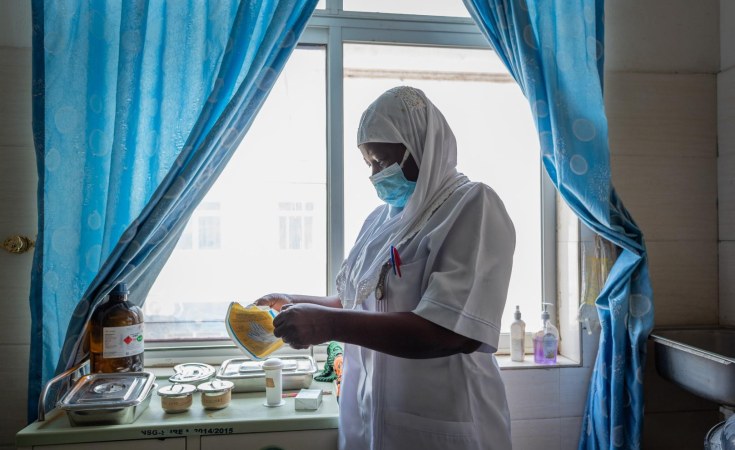Brazzaville — Cervical cancer poses a significant burden in sub-Saharan Africa, with 120,000 cases annually out of the global total of 690,000, further exacerbated by the HIV epidemic.
In an effort to accelerate progress against cervical cancer, the WHO Africa Regional Immunization Technical Advisory Group (RITAG) during a meeting held 7 - 9 November 2023 has urged countries to adopt a single-dose schedule for the human papillomavirus vaccine (HPV) vaccine in Africa, in line with the World Health Organization's (WHO) recommendations in 2022. Implementation of this recommendation represents a significant step forward in the region's fight against cervical cancer.
Currently, 27 African nations have incorporated the HPV vaccine into their routine immunization programmes, with a primary focus on girls aged 9-14. In November 2023, Togo became the latest country to introduce the human papillomavirus vaccine to protect adolescent girls from the leading cause of cervical cancer, following Nigeria which rolled out the HPV vaccine in October 2023. Overall, HPV vaccine coverage remain low. As of 2022, coverage of first dose in the African Region stands at only 33%, falling short of the global target of 90%. Increasing coverage is essential to reduce the burden of cervical cancer and improve public health outcomes.
However, challenges such as limited vaccine supply have hindered efforts to catch up with older age groups in certain areas.
In response to evolving evidence and challenges, countries like Cameroon and Cabo Verde have demonstrated adaptability by transitioning to a single-dose regimen and expanding vaccination to include boys. Additionally, the endorsement of a single-dose schedule by National Immunization Technical Advisory Groups (NITAGs) in 16 African countries highlights the importance of streamlined and cost-effective strategies.
To accelerate progress, WHO emphasizes a strategic approach that includes political advocacy, comprehensive coordination, resource optimization, multisectoral partnerships, and strengthening health systems.
"By integrating HPV vaccination with other health programmes and ensuring equitable access, we can accelerate progress towards protecting people against cervical cancer," says Dr Matshidiso Moeti, WHO Regional Director for Africa.
RITAG recommends several key actions, including adopting a single-dose schedule, extending vaccination to older age groups and boys where feasible, prioritizing immunocompromised individuals, strengthening advocacy and communication efforts, and promoting peer-to-peer learning for optimal service delivery strategies.
RITAG's endorsement of a single-dose HPV vaccine schedule marks a pivotal moment in Africa's fight against cervical cancer. By implementing these recommendations and adopting a strategic approach, the region can make significant progress in preventing this disease and ensuring a healthier future for its population.


